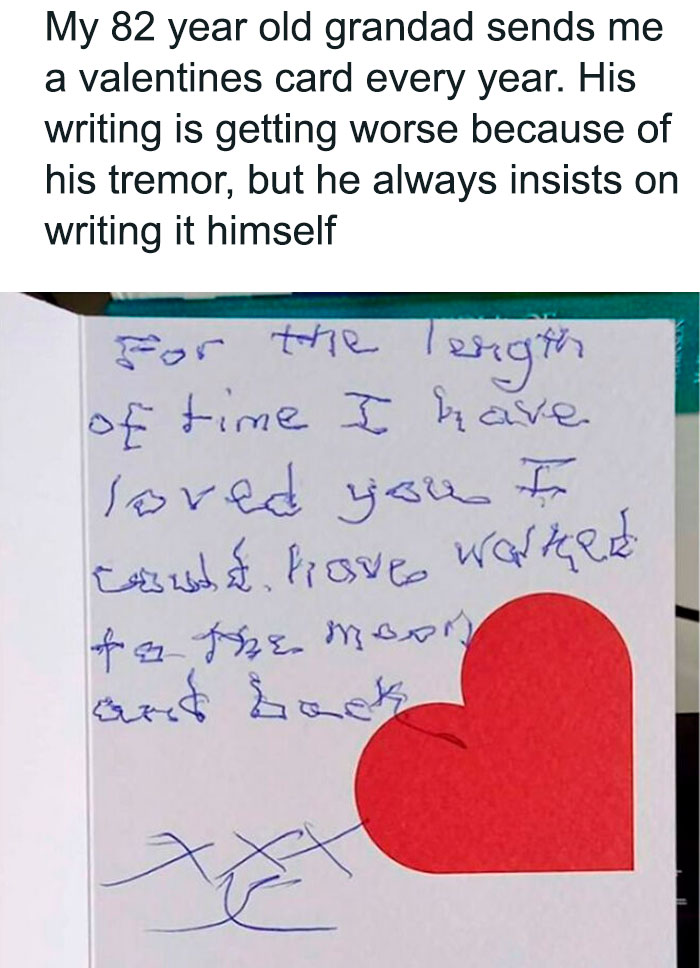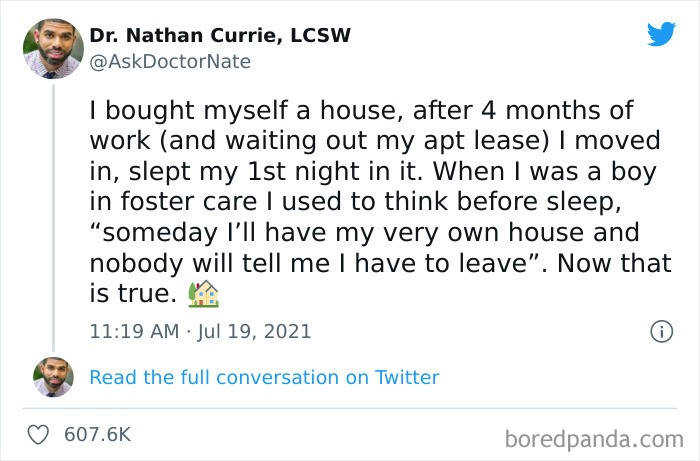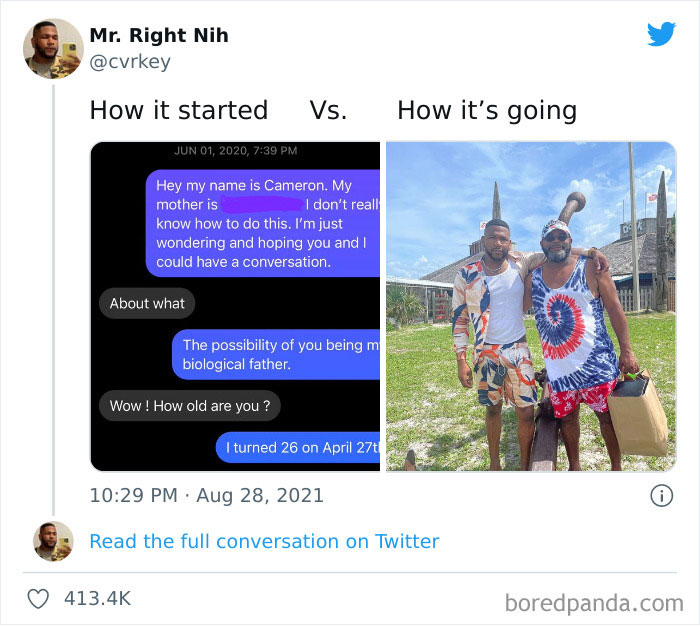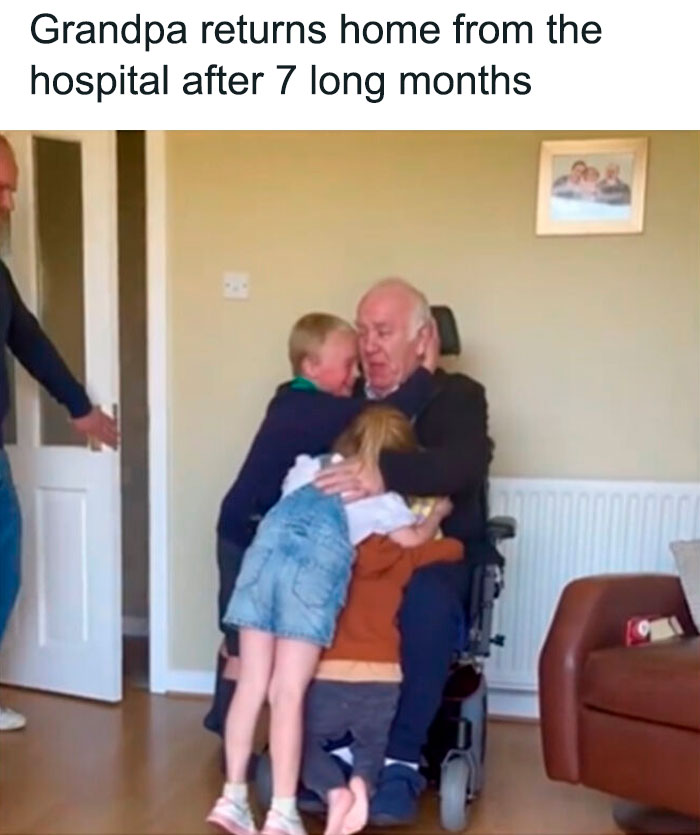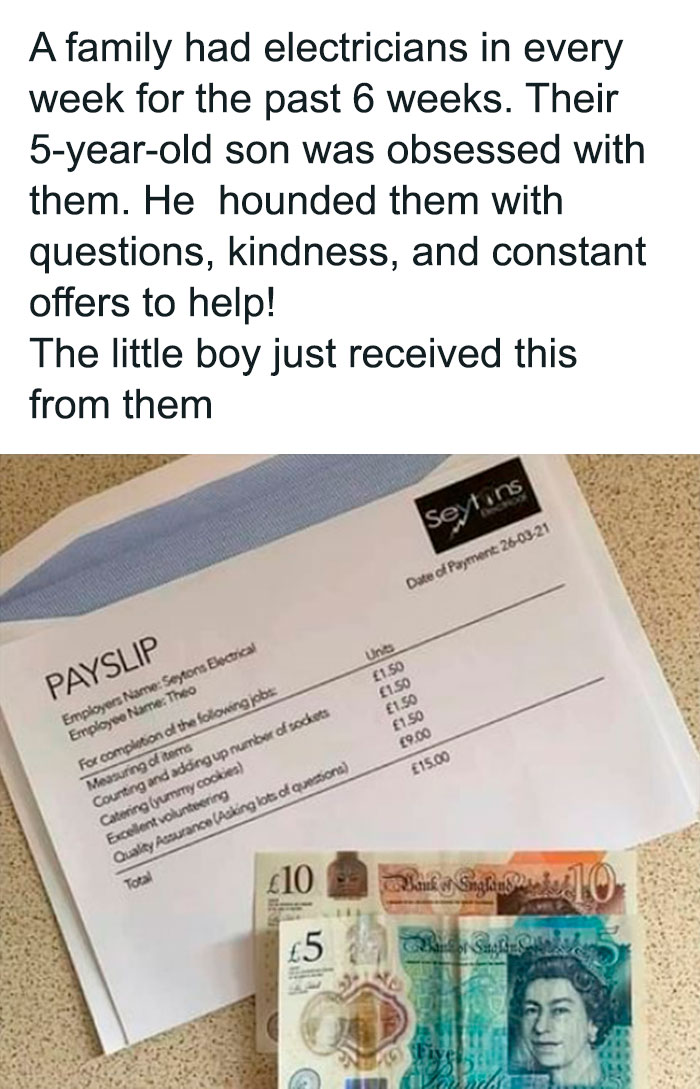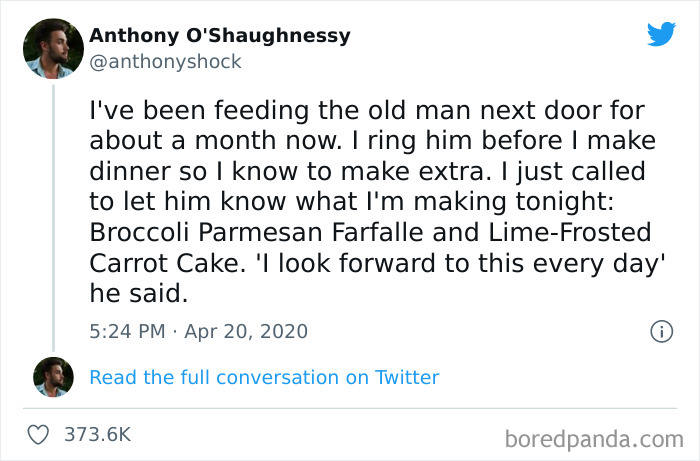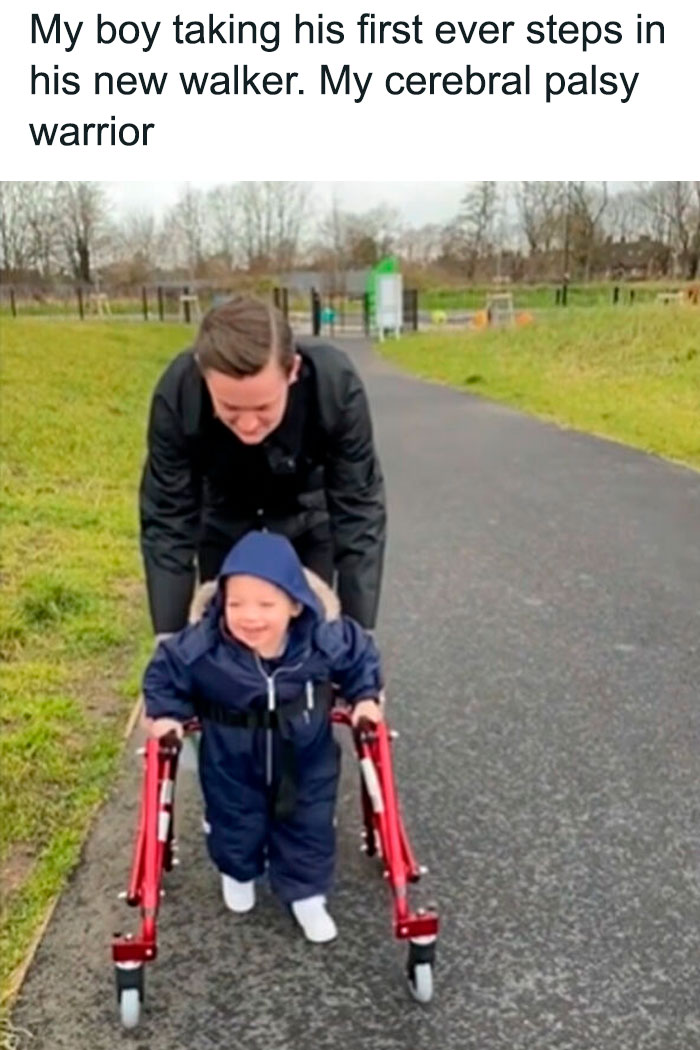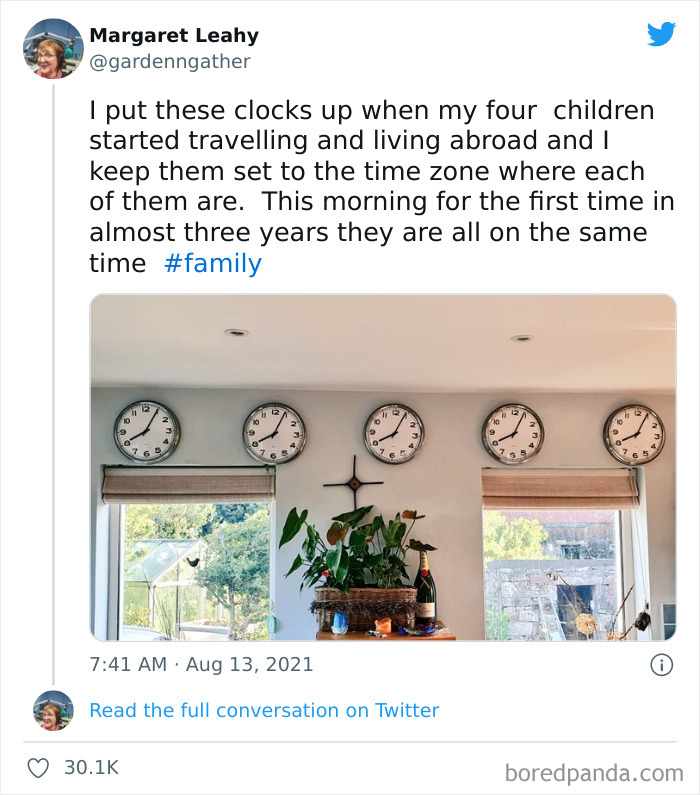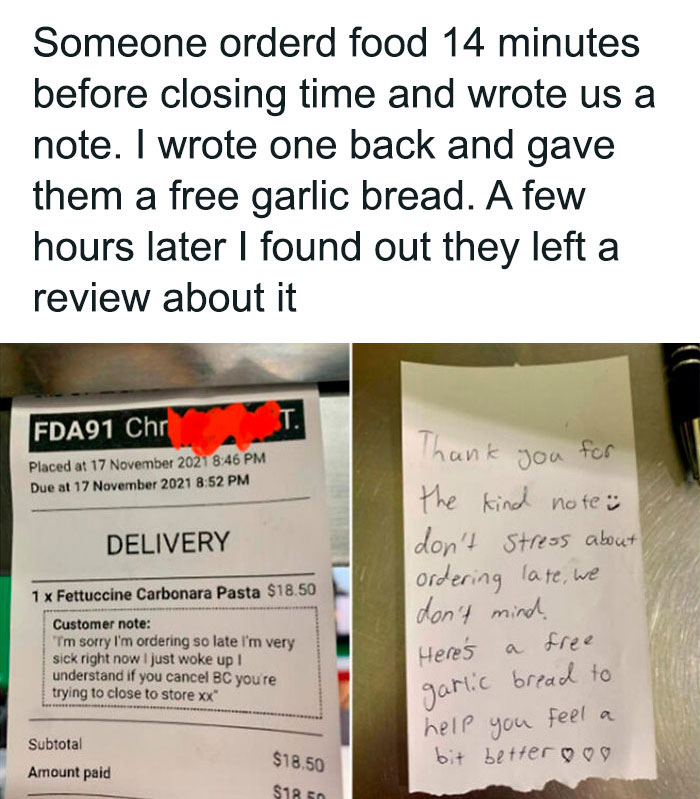The world can seem like a messed up place. Especially if we look at it through the mainstream media. But it can also be beautiful. We just need to remind ourselves of that every once in a while.
Enter the Instagram account ‘Good News Dog.’ It regularly fetches uplifting moments from around the globe for the 1.4 million people that follow it, giving them one reason to smile after another.
Think of it as a good boy who gets up early in the morning to bring you the newspaper. Only instead of your coffee table, the fella leaves it on your social media feed. And instead of the fearmongering articles, there’s a picture of a woman who just knit a bag of hats for a shelter. Or another one showing thousands of Berliners greeting Ukrainian refugees with signs, offering a place to stay.
Continue scrolling to explore this wholesome corner of the internet through Bored Panda’s hand-picked selection of its best posts.
More info: Instagram
#1
Image credits: goodnewsdog
#2
Today a lady and her husband came into our Home Depot and told us that the insurance company might not pay for their little boy’s walker, so they went on the internet and found plans to make one out of PVC pipe. My store manager heard about this and went over to them and said, “We got this.”
We started putting it together and told the family to go and enjoy ice cream and come back in an hour. Other associates started jumping in and when the family came back it was done. Everyone was crying to see Logan walk around with the biggest smile on his face.
When the family tried to pay us, we said “No way, this one is on us.”
What a wonderful act of kindness!
Image credits: goodnewsdog
Pages like ‘Good News Dog’ are needed more than you might think. “Unfortunately, a lot of the news we consume today isn’t so much reporting as it is a way of keeping people addicted to the news cycle,” said licensed psychologist Logan Jones, PsyD.
Since sensational headlines get more attention, Jones says media outlets often end up focusing on disaster reporting—and rarely any positive news.
“Consuming too much of this kind of news, whether actively or passively, can be very toxic, and what you hear has an impact on your mood.”
#3
Image credits: goodnewsdog
#4
Image credits: goodnewsdog
#5
Image credits: goodnewsdog
Annie Miller, MSW, LCSW-C, LICSW, explains the process like this: when we experience a threat, our brain activates the fight or flight response, and the systems in our body react accordingly.
Consuming the news can activate the sympathetic nervous system, which causes our body to release stress hormones like cortisol and adrenaline. Then, when a crisis is happening, and we are experiencing this stress response more frequently, Miller says physical symptoms may arise.
#6
Image credits: AskDoctorNate
#7
Image credits: goodnewsdog
#8
Image credits: goodnewsdog
#9
Image credits: goodnewsdog
This emotional toll and negative effect on the psyche was demonstrated in a study that found people who watched negative material, as compared to those who watched positive or neutral material, showed an increase in both anxious and sad moods after just 14 minutes of viewing television news bulletins and programs.
In addition to an increase in anxious and sad moods, the researchers also found the results to be consistent with the theories of worry that implicate a negative mood as a causal factor in facilitating worrisome thoughts.
#10
Image credits: goodnewsdog
#11
Image credits: goodnewsdog
#12
Image credits: goodnewsdog
#13
Image credits: goodnewsdog
There’s even a word for the act of obsessively reading bad news despite the onset of anxiety It’s called doomscrolling and even thought it’s quite new, research stretching back for decades has long warned that consuming too much negative news can take its toll.
Studies have linked poor mental health to news exposure during negative and traumatic events; the more news a person consumes during and after these events, the more likely they are to suffer from depression, stress and anxiety. For example, there’s a study that surveyed 4,675 Americans in the weeks following the Boston Marathon bombings and collected data on how much media they consumed. Participants who engaged with more than six hours of media coverage per day were nine times more likely to also experience symptoms of high acute stress than those who only watched a minimal amount of news.
#14
Image credits: nicolerosaaaa
#15
Image credits: goodnewsdog
#16
Image credits: goodnewsdog
#17
Image credits: schaalfan
2020 was exceptionally bad. “We’ve had so much news from COVID-19 and the economic breakdown to the reckoning with racial injustice combined with hurricanes and firestorms,” said Roxane Cohen Silver, a research psychologist at the University of California, Irvine. “It’s clear the stress of the election has added to all this.”
“So much of it is open-ended and uncertain at the moment,” Graham Davey, an emeritus professor of psychology at the University of Sussex in the United Kingdom added. “That alone is something that people find extraordinarily stressful.”
#18
Image credits: goodnewsdog
#19
Image credits: goodnewsdog
#20
Image credits: cvrkey
#21
Image credits: Beavs
Psychologists refer to it as an “intolerance of uncertainty,” and, unfortunately, it’s a vicious cycle. You find listening to the news stressful and anxiety-provoking but can’t stop doing it because you feel the need to find out what on earth is going on.
#22
Image credits: renblankk
#23
Image credits: goodnewsdog
#24
Image credits: goodnewsdog
#25
Image credits: goodnewsdog
But there are things that people can do to protect their mental health from the potentially damaging effects of obsessively consuming news. “It’s important to be informed but we don’t want you to be doomscrolling,” said Judith Andersen, a health psychologist at the University of Toronto in Canada.
“Check the news just once a day, and I don’t think it’s best to check in the morning because it clouds the rest of your day.” She also recommends confining yourself to well-established and credible news sources to avoid the risk of over-hyped or even misleading content.
#26
Image credits: goodnewsdog
#27
Image credits: MattGalatzan
#28
Image credits: goodnewsdog
#29
Image credits: goodnewsdog
But those times that you do sit down to get up to speed with the world around you, Davey recommends that you actually read articles in full, rather than simply checking out the headlines. “Headlines are usually dramatized, and you need more context than that,” he explained.
Or simply fire up ‘Good News Dog!’
#30
Image credits: goodnewsdog
#31
Image credits: goodnewsdog
#32
Image credits: goodnewsdog
#33
Image credits: goodnewsdog
#34
Image credits: goodnewsdog
#35
Image credits: goodnewsdog
#36
Image credits: goodnewsdog
#37
Image credits: goodnewsdog
#38
Image credits: goodnewsdog
#39
Image credits: goodnewsdog
#40
Image credits: goodnewsdog
#41
Image credits: anthonyshock
#42
Image credits: goodnewsdog
#43
Image credits: goodnewsdog
#44
Image credits: goodnewsdog
#45
Image credits: goodnewsdog
#46
Image credits: gardenngather
#47
Image credits: goodnewsdog
#48
Image credits: goodnewsdog
#49
Image credits: goodnewsdog
#50
Image credits: bbymandi
Go to Source
Author: Ieva Pečiulytė



